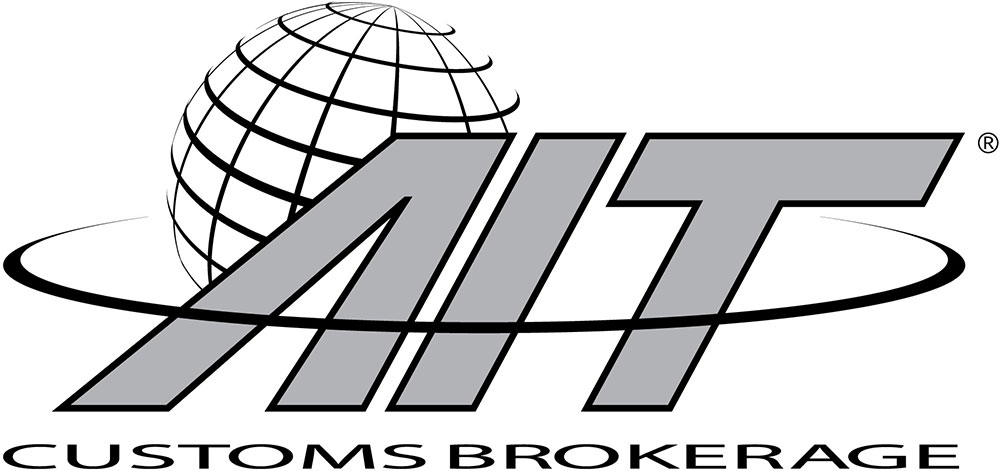Slash Delivery Time with U.S. Customs Clearance Services from AIT's In-House Customs Brokerage
Reduce risk, boost the bottom line when you partner with AIT's brokerage logistics experts
The consequences for U.S. customs clearance mistakes can go far beyond costly delays and headaches. In fact, in 2018 alone, the United States made 50,952 trade seizures, issued 1,385 trade penalties, and collected $42.2 million in importer audits.
That's why the world's leading businesses, from across industries, rely on AIT's professionals for customs brokerage support.
At AIT, our in-house, licensed customs brokers manage every aspect of your import and export U.S. customs clearance, reducing delays, navigating trade standards and regulations, and even handling documentation development and submission for you—so you can get back to focusing on your business.
For more than four decades, AIT Customs Brokerage has guided our clients' shipments past U.S. customs clearance hurdles to keep their cargo moving—on time and problem free, with services and benefits including:
- Priority clearance from Canada and Mexico within one hour
- Bonded warehouses in all regions
- Seamless regulatory compliance with the FDA, USDA, DOT, and more
- Documentation management
- Carnet issuances, validations, and cancellations
- "Wheels Up" in-air clearance
- Remote Location Filing
- Online shipment tracking, reporting
- 24/7 customer service
- And more!
Customs brokers are professionals, licensed by U.S. Customs and Border Protection (CBP), who manage the legalities and logistics of importing and exporting goods for their clients. Brokers handle information and payment submission to CBP on behalf of their customers.
A broker can be a single individual, or a licensed corporation, association or partnership, referred to as a brokerage.
The CBP licensing process ensures that brokers are knowledgeable in U.S. entry procedures, admissibility requirements, classification, valuation, as well as import duty, tax and rate fees.
A broker can be a single individual, or a licensed corporation, association or partnership, referred to as a brokerage.
The CBP licensing process ensures that brokers are knowledgeable in U.S. entry procedures, admissibility requirements, classification, valuation, as well as import duty, tax and rate fees.
In short, a licensed customs brokerage makes importing merchandise and commodities to the United States much easier for their clients.
Some of the import steps that customs brokers handle:
Some of the import steps that customs brokers handle:
- Customs declarations and additional document preparation
- Liaising with government authorities relevant to your import
- Duty, tax, and rate calculation
- Government agency clearance assistance
Freight forwarders (like AIT) are professional, third-party entities who arrange and facilitate the logistics and transportation of cargo shipments, including compliance paperwork and documentation.
A customs broker, on the other hand, submits any paperwork, information and/or payments required of their clients to the CBP.
Where freight forwarders are logistics experts, brokers are licensed masters of import ins and outs, from customs restrictions to entry procedures to admissibility requirements, valuation, classification, and duty, fee and tax rates.
Freight forwarders can also be customs brokers—and many are. But, unlike AIT, not every customs broker is a freight forwarder.
A customs broker, on the other hand, submits any paperwork, information and/or payments required of their clients to the CBP.
Where freight forwarders are logistics experts, brokers are licensed masters of import ins and outs, from customs restrictions to entry procedures to admissibility requirements, valuation, classification, and duty, fee and tax rates.
Freight forwarders can also be customs brokers—and many are. But, unlike AIT, not every customs broker is a freight forwarder.
If you're shipping into the United States via air, the answer is a definite yes because, according to U.S. federal law, a customs broker is required to clear your shipment.
But there are other cases where you'll need a formal entry filing from a licensed customs broker, including if you're moving high-value goods, like jewelry or electronics (specifically, items worth more than $2,500).
Another example where you'll need a broker for filing: if whatever you're importing falls under customs restrictions regarding U.S. regulations (like packaged goods under the jurisdiction of the Food and Drug Administration or vehicles regulated by the Department of Transportation).
But there are other cases where you'll need a formal entry filing from a licensed customs broker, including if you're moving high-value goods, like jewelry or electronics (specifically, items worth more than $2,500).
Another example where you'll need a broker for filing: if whatever you're importing falls under customs restrictions regarding U.S. regulations (like packaged goods under the jurisdiction of the Food and Drug Administration or vehicles regulated by the Department of Transportation).

